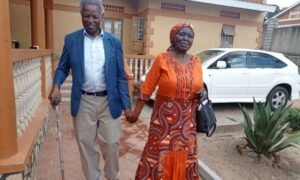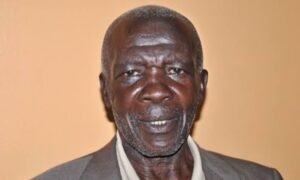What you need to know:
- Joel Ssenyonyi, the Nakawa West Member of Parliament, and Leader of the Opposition, announced that the shadow cabinet has decided not to participate in the regional sittings.
- She stressed the importance of assessing how budget allocations impact land management institutions and the protection of land rights, particularly for women, who often face significant barriers in accessing and securing land.
A lecturer from Makerere University and prominent economist has strongly criticized the Ugandan Parliament for their planned regional sittings. The Parliamentary Commission is reportedly planning to allocate more than sh5 billion for each of the four scheduled regional sessions.
Dr. Fred Muhumuza has aligned with opposition members and a segment of the public in opposing this proposed expenditure. Joel Ssenyonyi, the Nakawa West Member of Parliament, and Leader of the Opposition, announced that the shadow cabinet has decided not to participate in the regional sittings. Ssenyonyi argued that the five billion shillings allocated for each session could be better utilized in addressing pressing issues in the health or education sectors.
However, Ssenyonyi’s stance has angered Northern Uganda legislators, who accused him of being biased against their region. MPs Anthony Akol and Ojara Mapenduzi claimed that Ssenyonyi’s opposition to the regional sittings stems from his lack of knowledge about Northern Uganda.
Dr. Muhumuza praised Ssenyonyi for speaking out against what he described as the wasteful use of taxpayers’ money on regional parliamentary sessions. He questioned the necessity of holding these sittings, suggesting that the resources could be better spent on solving the actual problems faced by Ugandans, especially those related to land issues.
Muhumuza made these remarks while addressing participants at the Post-Budget Dialogue, which analyzed Uganda’s National Budget for 2024/2025 and its implications on land management and women’s land rights. The dialogue was organized by the Women’s Land Rights Movement (WLRM), Food Rights Alliance (FRA), and Uganda Community-Based Association for Women and Children’s Welfare (UCOBAC).
Agnes Kirabo, the executive director of FRA, emphasized the need for a thorough analysis of land issues, especially those affecting women, as they are central to Uganda’s economic development, food security, and social stability. She highlighted the challenges facing land governance in Uganda, including land disputes, inadequate registration systems, gender disparities in land rights, and insufficient funding for the land sector.
Lillian Achola added that the recently approved National Budget for FY 2024/25 has significant implications for various sectors, including land management and administration. She stressed the importance of assessing how budget allocations impact land management institutions and the protection of land rights, particularly for women, who often face significant barriers in accessing and securing land.
Dr. Muhumuza further noted that unresolved land issues are now determined by who has more resources to deploy police or civilian guards, underscoring the pervasive nature of land disputes across different ministries, agencies, and departments. Kirabo also emphasized the complexity of women’s land rights and the importance of education in empowering women to acquire land, citing her own experience as an example.”Makerere Economist Criticizes Ugandan Parliament’s Costly Regional Sittings Amid Land Rights Concerns””Makerere Economist Criticizes Ugandan Parliament’s Costly Regional Sittings Amid Land Rights Concerns”

Do you have a story or an opinion to share? Email us on: info@falconposts.com Or follow the Falconposts on X Platform or WhatsApp for the latest updates.












